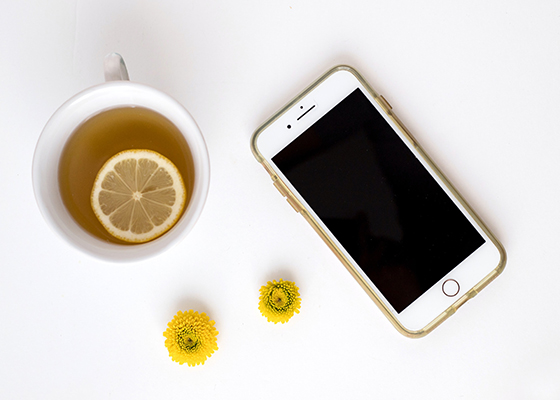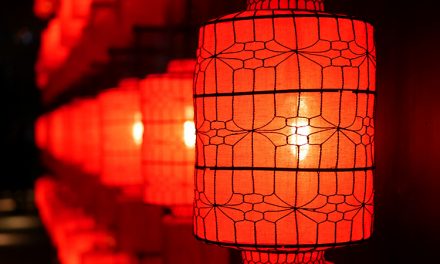Offline Moment: Digital Detox
We use our phones more than ever so have you considered a digital detox? Whether you put yours down for a whole weekend, or try to reduce your use, there are some great apps available to help you on your digital detox.
Living In Isolation
Have you ever considered a digital detox? Many are talking about it, but what is it precisely, and why is there so much fuss around it right now? A digital detox, plain and simple, means a voluntary break from social media and digital environments. It also means not using any tech items such as smartphones, laptops, tablets and similar devices. The ultimate goal is to reconsider our relationship with technology and to finally make it a healthier one. Our life has been collectively under a stormcloud of late. We would have never thought that we would have to spend so much time indoors, and to experience isolation this consistently. Now more than ever, technology is a primary tool for connecting with the outside world, or the world in general, as we see it for the first time as a potential risk, a threat. On top of this, we add a change like switching our office desk for working from home, it’s not excessive to say we spend most of our time connected.

We’re Looking At Our Phones Now More Than Ever
We have often noticed that sometimes, the dose makes the poison. This applies to anything, including tech devices. While we live in one of the most alienating moments in history, additional effort in checking up on ourselves is essential. Finding a way to do so is very personal, but taking a break can be extremely refreshing.
According to Dscout, we were checking our phones around 2600 times a day in 2016. This number kept increasing, and now that we’re social distancing we’re apparently at our peak of digital connection. Whether we’re addicted or not is hard to say because spending so much time online has became the general norm. Our digital habits have a significant impact on our wellbeing. As the majority of the pieces of information surrounding us are about a problematic global pandemic, it’s essential to embrace the fact that this has a tangible effect on our mental health. There’s an endless record about it (we’ll suggest this article by the Atlantic).
However it’s having a more subtle impact on our concentration and productivity. With each notification we receive on our phone, even without taking the proper time to read its content, it’s as distracting as receiving a phone call. Spending an afternoon scrolling on social media feeds, retweeting, sending snaps, can lead to physical fatigue.
Hot To Digital Detox
Someone might find similarities between a digital detox and going on a diet. A detox is pretty extreme, and living without technology is utopic. You can find an alternative that suits your personality and habits better. If you feel like taking a drastic break, you could take advantage of your days off from work. A weekend is a fantastic start as telling yourself you have a week ahead of digital detox might be too daunting. We recommend warning friends and family that you’re planning to take some time off. That way you’ll be less concerned about people worrying about your whereabouts. One status change on WhatsApp should be enough. That way you won’t have to send dozens of texts explaining that you’re not replying to texts. What’s the point in detoxing if you have to spend extra time on your phone before and after?

Then, simply switch off your devices and try to plan activities for the days. Keeping yourself healthily busy will help you avoid the urge to switch on your phone. At the same time, try to reconsider the healthy potential of boredom. In the age of hyper-productivity, boredom can be such an underrated source of energy and creativity. Boredom is the blank canvas of the mind.
Apps To Help Your Digital Detox
If you don’t feel like you can take a couple of days off or prefer to start by “decluttering” your time online, there are plenty of apps that can plan and schedule digital breaks. Moment tracks how much you use your phone, how much time you’ve spent looking at the screen, which apps you’ve used most and how many times you’ve unlocked it too. Their app will guide you through short, daily exercises provided through Moment Coach, helping you to use your phone in a healthier way and most importantly, doing it step by step.
Tap Project is an app created by Unicef, which donates access to water supplies to countries with water emergencies. How? Starting from “digital abstinence” of users. Headspace did a similar project as well, donating funds to charities for each minute in which you don’t reactivate your phone screen. Isn’t it a beautiful way to motivate yourself?
When you switch on your phone again, it will be completely normal for you to feel like spending extra time online, almost as a way to keep up with your digital FOMO post detox. That’s why repeating the experiment from time to time will “normalise” your digital detox in a routine. Rather than aiming for a utopic life far from technology, you can aim instead for digital happiness.
Disclaimer: The people and models in the images featured are not associated with The Vendeur and do not endorse it or the products shown.




